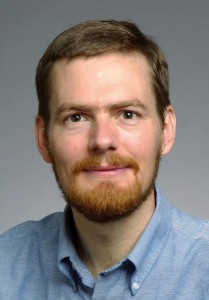A UW CSE research paper on proactive conflict detection, part of the speculative analysis project led by professors Michael Ernst and David Notkin, was rated the most practically relevant software engineering research of the last five years in a recent industrial relevance study.
The study, which was conducted by Microsoft Research and Singapore Management University, asked more than 500 software developers to rate the relevance of 571 research papers in order to determine how relevant software engineering research is to practitioners in the field. The greatest number of respondents rated the UW CSE project, which helps developers to collaborate more effectively and prevents potentially costly conflicts, as “essential” to software development practice.
When developers on a team work in parallel, they may make changes that are independently good but which, when combined, break the software. The UW CSE research team developed a tool, Crystal, that helps developers to identify, manage and prevent such conflicts by continuously merging people’s changes, before the software developers do so and without interfering with the developers. If the changes are in conflict, developers learn about them and can address them immediately, before wasting time on code that will later have to be reworked or discarded. If the changes are not in conflict, then developers can proceed with confidence, without having to worry about potentially negative consequences. In both cases, developers can spend less time coordinating with their teammates and more time getting their work done.
The project was conducted by Yuriy Brun (then a postdoc at UW CSE, now a professor at University of Massachusetts) and Reid Holmes (previously a postdoc at UW CSE, now a professor at University of British Columbia) alongside Michael Ernst and the late David Notkin of UW CSE’s Programming Languages & Software Engineering group.
To learn more about proactive conflict detection, watch this video and read the research paper here. Read the complete results of the industrial relevance study, which was published at the ESEC/FSE conference last month, here.
Michael Ernst’s name keeps cropping up in the search for excellence in software engineering: in 2013, Microsoft Academic Search ranked him 2nd among software engineering researchers worldwide, based on his work over the previous 10 years.
We have known for some time, of course, that our PLSE group is among the best. But it’s always nice to have external validation!


